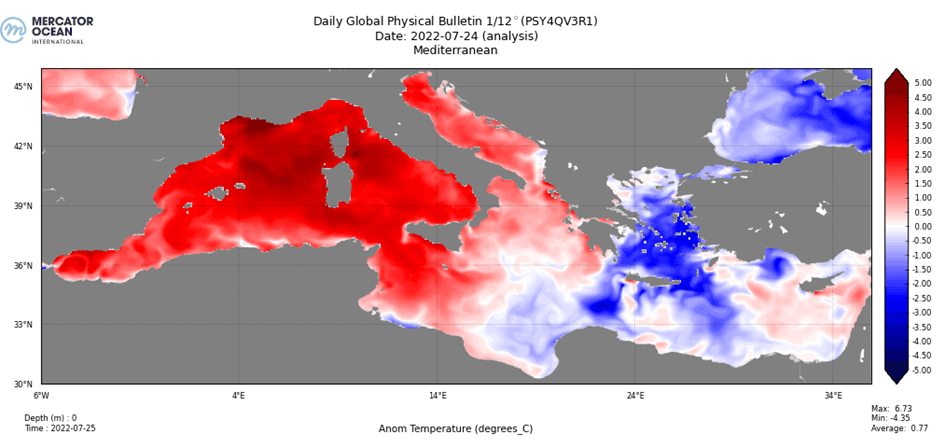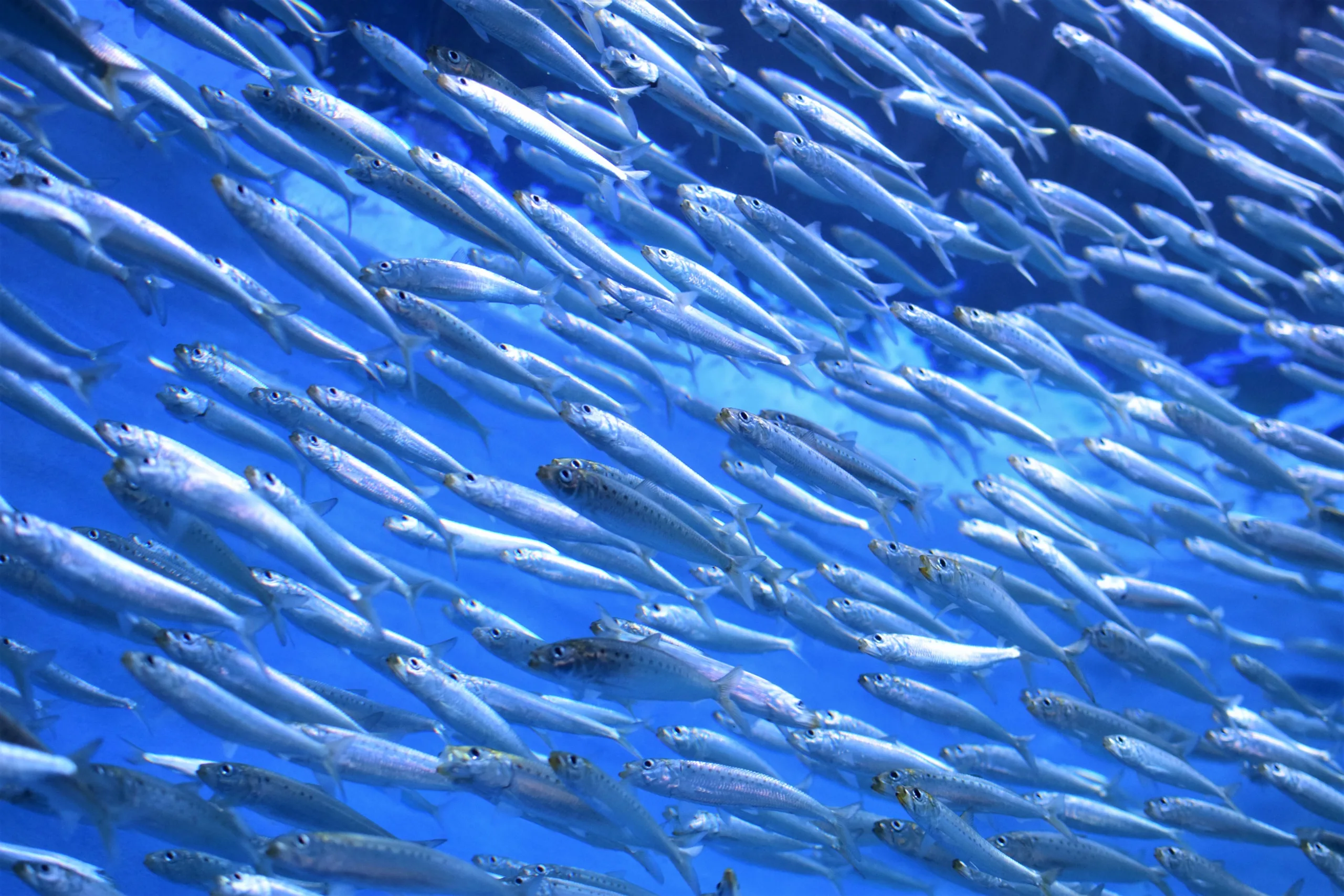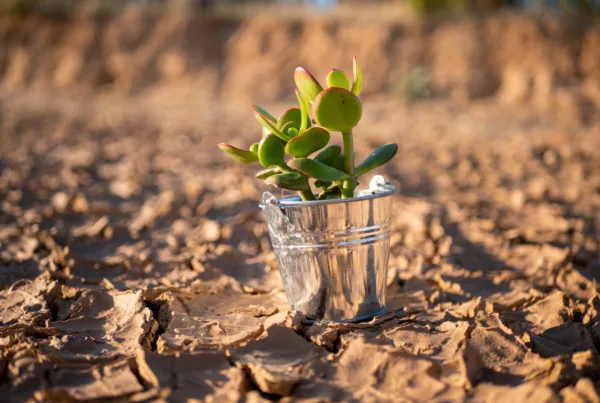The Mediterranean Sea, a renowned tourist destination and a vital source of food for millions is under threat due to climate change. Rising temperatures and changing weather patterns are causing severe impacts on marine life in the region. A recent report from the Mediterranean Science Commission reveals that the average sea surface temperature in the Mediterranean has increased by almost 1.5°C over the past century. This has led to a decline in marine biodiversity, as many species can no longer survive in their traditional habitats.
Tunisia is experiencing significant impacts on its marine biodiversity due to climate change. A study published in the journal Aquatic Conservation: Marine and Freshwater Ecosystems found that rising sea temperatures and changing ocean chemistry are causing significant impacts on the marine biodiversity of Tunisia. Seagrasses and other crucial habitats are disappearing, leading to declines in many fish and invertebrate species. Another study published in the journal PLOS ONE discovered that the increase in sea surface temperatures is leading to changes in the abundance and distribution of some species of zooplankton, which are an important food source for many marine organisms in Tunisia. Moreover, the timing of the spawning season for some fish species, like the European anchovy and Sardine, has shifted by up to two weeks over the past few decades, likely as a result of changing sea temperatures.
To better understand this phenomenon we went to meet Mohamed Salah Ben Romdhane, a Professor at the National Agronomic Institute of Tunisia and a specialist in the impact of climate change on marine biodiversity. who will explain in more detail the impacts of the climate crisis on marine biodiversity in Tunis.
According to a study published in the journal PLOS ONE, the Mediterranean’s marine biodiversity has decreased by almost 34% over the past 50 years, with climate change being a significant factor. Rising sea temperatures have led to the disappearance of some species, such as seagrasses and certain fish species, while other species have been forced to move to different areas to survive. The Mediterranean is one of the most vulnerable regions in the world to the impacts of climate change on marine biodiversity, according to a study published in the journal Nature Climate Change. Up to 50% of marine species could be lost by the end of the century.
The acidification of the Mediterranean Sea is also a significant concern for marine biodiversity. As carbon dioxide is absorbed into the ocean, it reacts with seawater to create carbonic acid, making it more challenging for many species to build their shells and skeletons. This can have devastating consequences for species such as corals and mollusks. A study published in the journal Marine Pollution Bulletin found that the Mediterranean is becoming more acidic at a rate that is five times faster than the global average.

The most significant impact of climate change on the Mediterranean’s marine life is the proliferation of invasive species. As sea temperatures rise, species from warmer waters are migrating northward, disrupting entire ecosystems and threatening the survival of native species. In addition, climate change is causing changes in the timing of crucial ecological events, such as the spawning and migration of certain species. For instance, the bluefin tuna spawning season in the Mediterranean has shifted by almost two weeks over the past few decades, according to a study published in the journal Global Change Biology. A study published in the journal Biological Invasions discovered that invasive species are spreading at an alarming rate in the Mediterranean, with over 1,000 new species having been recorded in the region over the past century. Rising sea temperatures are one of the primary drivers of this trend, allowing species from warmer waters to migrate northward and establish themselves in new areas.
To better understand this phenomenon we went to meet Mohamed Salah Ben Romdhane, a Professor at the National Agronomic Institute of Tunisia and a specialist in the impact of climate change on marine biodiversity. who will explain in more detail the impacts of the climate crisis on marine biodiversity in Tunisia.
Urgent action is needed to address the issue of climate change in the Mediterranean Sea. Reducing greenhouse gas emissions, and protecting the Posidonia by establishing more protected areas to help preserve vulnerable species and ecosystems is crucial.
Sources:
- https://www.sciencedirect.com/science/article/abs/pii/S2352485515300116
- https://www.sciencedirect.com/journal/marine-pollution-bulletin/vol/178/suppl/C
- PLOS ONE study on declining Mediterranean marine biodiversity: https://journals.plos.org/plosone/article?id=10.1371/journal.pone.0185000
- Nature Climate Change study on vulnerability of Mediterranean marine biodiversity: https://www.nature.com/articles/nclimate2959
- Global Change Biology study on shifting sardine spawning season in the Mediterranean: https://onlinelibrary.wiley.com/doi/abs/10.1111/gcb.14418
This article was developed in collaboration with the Earth Journalism Media Mediterranean Initiative project.
Copyright © 2022 Blue Tunisia. All rights reserved




